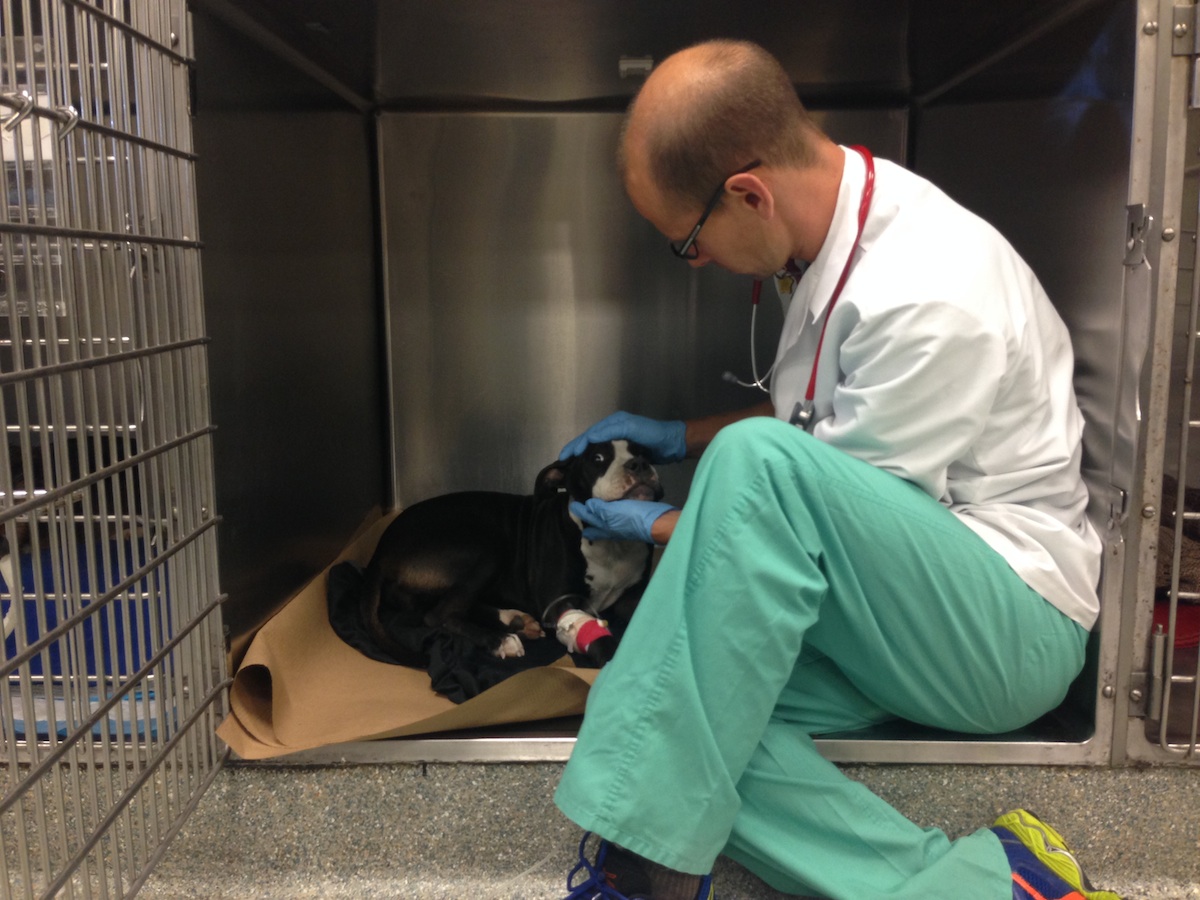Canine Parvovirus Outbreak Hits Massachusetts
As cold and flu season approaches once again, Massachusetts pet owners have another issue to worry about: canine parvovirus.
It’s a common intestinal virus that causes vomiting, diarrhea, and lethargy in dogs, and it’s currently striking Massachusetts in unusually high numbers. Lynn, Gardner, and the Springfield area have been especially hit hard, recording between 100 and 200 cases each—far more than normal. “It’s relatively uncommon to see these hotspots of parvo, and I’m not quite sure why we’re seeing that,” says Dr. Kiko Bracker of Boston’s Angell Animal Medical Center. “We always see a small number of parvo cases, but for some reason, we’re seeing a lot in a few focal areas.”
Massachusetts experienced a similar string of parvo cases about 15 years ago, but Bracker says it’s impossible to predict whether this outbreak will continue to intensify. “I don’t know what the end game or end date is like here, but hopefully it’s going to start diminishing itself,” he says.
Parvo is spread through direct or indirect contact with dogs’ feces—which can happen when dogs sniff other dogs or roll or play in areas where feces is present—and is not harmful to humans. Though it is extremely contagious, Bracker says the disease is treatable and easily preventable with vaccination. Indeed, his top advice to dog owners is to vaccinate before it’s too late. “It’s beyond me [why you wouldn’t],” he says. “Maybe it’s a situation of being penny-wise, pound-foolish. You’ll really wish you’d gotten the $25 vaccination if your dog comes down with parvo.”
If unvaccinated, Bracker recommends keeping your dog away from other dogs and stresses the importance of knowing the warning signs of parvo: decreased energy and appetite at first, followed by vomiting and diarrhea. Owners should be especially careful if their dog is between 10 weeks and six months old or one of a few particularly susceptible breeds, including Rottweilers, pit bulls, labradors, and shepherds. If there’s any indication that a dog is sick, Bracker recommends seeking medical help immediately since 90 percent of treated dogs survive while 90 percent of untreated cases are fatal.
In the end, though, Bracker says the safest course of action is simply to get your pet vaccinated. “This is a common disease that is always showing itself in small amounts, and dogs are at great risk if they’re not vaccinated.”



